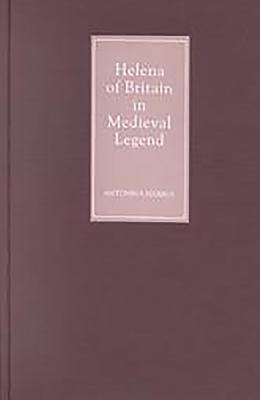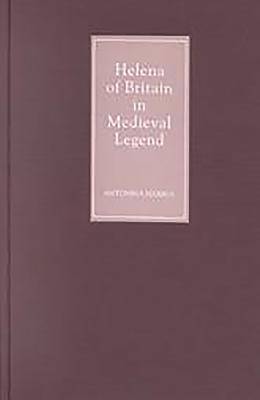
- Afhalen na 1 uur in een winkel met voorraad
- Gratis thuislevering in België vanaf € 30
- Ruim aanbod met 7 miljoen producten
- Afhalen na 1 uur in een winkel met voorraad
- Gratis thuislevering in België vanaf € 30
- Ruim aanbod met 7 miljoen producten
Zoeken
Omschrijving
St Helena, mother of Constantine the Great and legendary finder of the True Cross, was appropriated in the middle ages as a British saint. The rise and persistence of this legend harnessed Helena's imperial and sacred status to portray her as a romance heroine, source of national pride, and a legitimising link to imperial Rome. This study is the first to examine the origins, development, political exploitation and decline of this legend, tracing its momentum and adaptive power from Anglo-Saxon England to the twentieth century. Using Latin, English, and Welsh texts, as well as church dedications and visual arts, the author examines the positive effect of the British legend on the cult of St Helena and the reasons for its wide appeal and durability in both secular and religious contexts. Two previously unpublished 'vitae' of St Helena are included in the volume: a Middle English verse 'vita' from the 'South English Legendary', and a Latin prose 'vita' by the twelfth-century hagiographer, Jocelin of Furness. ANTONINA HARBUS is a Research Fellow in the Department of English, University of Sydney.
Specificaties
Betrokkenen
- Auteur(s):
- Uitgeverij:
Inhoud
- Aantal bladzijden:
- 223
- Taal:
- Engels
Eigenschappen
- Productcode (EAN):
- 9780859916257
- Verschijningsdatum:
- 20/06/2002
- Uitvoering:
- Hardcover
- Formaat:
- Genaaid
- Afmetingen:
- 163 mm x 242 mm
- Gewicht:
- 512 g

Alleen bij Standaard Boekhandel
+ 354 punten op je klantenkaart van Standaard Boekhandel
Beoordelingen
We publiceren alleen reviews die voldoen aan de voorwaarden voor reviews. Bekijk onze voorwaarden voor reviews.











